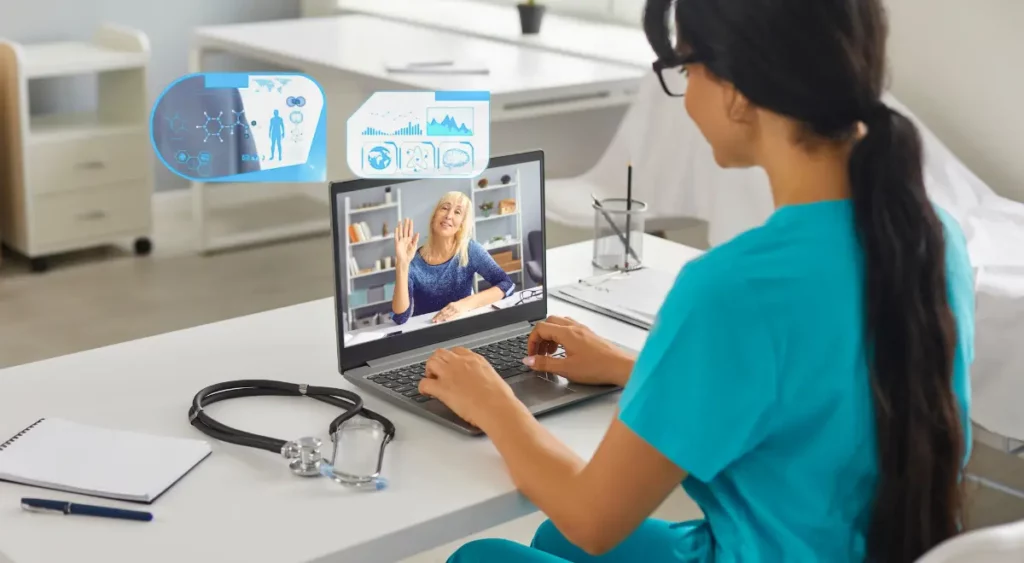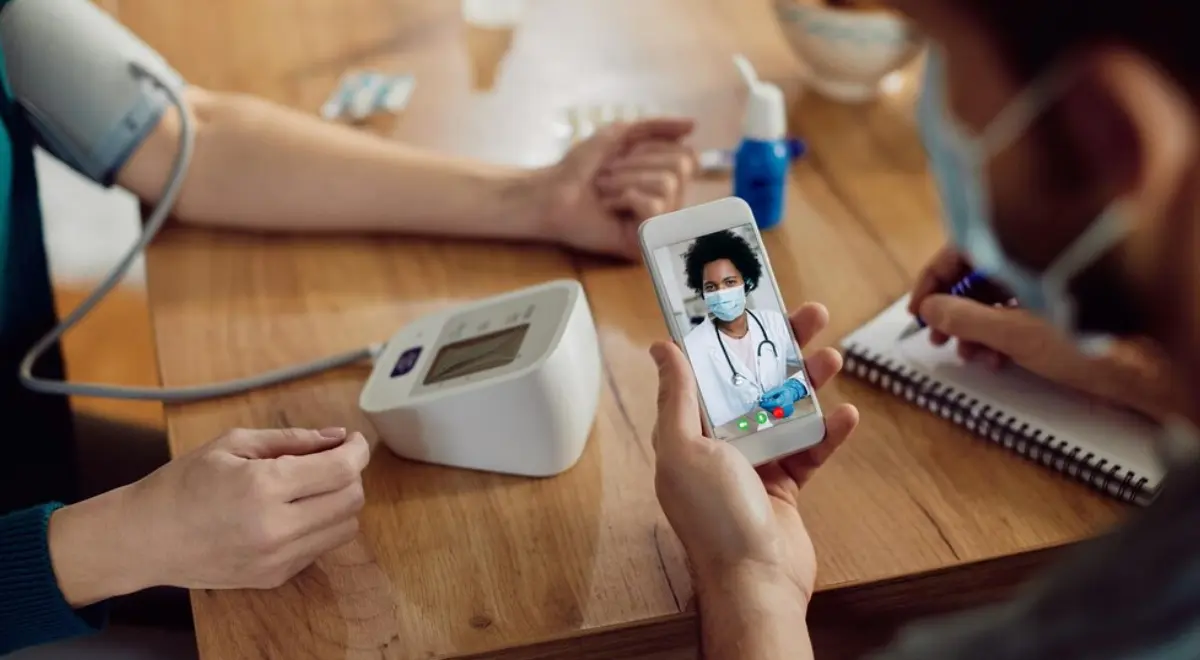Why Should Providers Embrace RPM and CCM Programs?

Want to take your healthcare services a level up? Remote Patient Monitoring (RPM) and Chronic Care Management (CCM) are the front runners in remote patient care. Healthcare organizations are opting for remote healthcare programs like RPM and CCM to reduce healthcare costs and to deliver result-oriented treatment to patients suffering from chronic conditions.
The Centers for Medicare and Medicaid Services (CMS) began reimbursing providers for chronic care management services in 2015, and RPM reimbursements were added a few years later in 2018. Since then, CCM and RPM programs have been adopted rapidly.
The Remote Patient Monitoring (RPM) program pays providers for:
- Integrated devices to collect and send patient healthcare data to a software platform.
- The time spent to evaluate the patient data to make modifications to the patient’s care plan or intervene if the data suggests an exacerbation or deterioration in patient’s health.
This program provides healthcare providers with timely clinical information to help them manage their patient’s chronic conditions and make interventions as needed. RPM provides insight into treatment adherence and health outcomes.
Table of Contents
ToggleCMS Requirements for Remote Patient Monitoring
- Eligibility requirements: Patients must have at least one chronic condition requiring RPM services. Only established patients who have been examined and have a treatment plan may participate. Common conditions include diabetes, heart failure, and hypertension.
- Minimum device readings: Providers must get 16 daily readings per month.
- Minimum time spent: Providers must spend at least 20 minutes per month delivering RPM services, which may involve examining and analyzing patient data as well as taking actions based on the data insights.
- Patient consent: Prior to beginning the treatment, the patient must provide verbal or written consent.
In comparison to RPM, chronic care management refers to the coordination and management of care for patients suffering from two or more chronic conditions. A qualified healthcare professional, including a care manager, nurse practitioner, physician, or other licensed clinical staff works closely with the patient to improve health outcomes, avoid prolonged illness, improve patient engagement, and boost self-management in patients.
CMS Requirements for Chronic Care Management
- Eligibility requirement: Patients must have multiple (two or more) chronic conditions expected to last at least 12 months, or until the death of the patient.
- Initiating visit: New patients or those who have not been seen by the provider in the last 12 months must have a first visit to review their eligibility for the program.
- Patient consent: Prior to beginning the treatment, the patient must provide verbal or written consent.
- Minimum time spent: The care team must spend at least 20 minutes per month offering CCM services to patients, either directly or indirectly through care coordination. Time spent must be recorded in the patient’s electronic medical record.
- Billing eligibility: Only one practitioner may bill for monthly CCM services.
How RPM and CCM Are Benefitting Healthcare Providers?
- According to 94% of healthcare providers worldwide, RPM improves patient outcomes.
- 79% of the participants believe that CCM improves the care delivery model.
- 88% of healthcare systems and hospitals currently have or plan to invest in RPM in 2025.
- RPM industry has tripled in size and by 2028; it is anticipated to increase at a compound annual growth rate of 20%.
- RPM CPT Code 99454, one of the new codes added in 2022, was billed over 1.2 million times in 2024, a 41% increase over 2023.
- In 2024, the CPT Code 99490 for CCM was billed over 4.5 million times, a 5% increase over 2023.
- RPM can reduce hospitalizations by up to 25% for chronically ill patients.
- RPM and CCM programs help deliver 90% better outcomes than in-clinic visits.
Enhance Patient Outcomes and Engagement with RPM and CCM
Both RPM and CCM are proven to boost patient engagement and outcomes, along with improving treatment efficiency and adherence. Providers can achieve the following by implementing both RPM and CCM collaboratively:
- RPM can reduce hospital readmission rates among heart patients by up to 50%.
- RPM patients will have better blood pressure control and a reduced systolic BP.
- Our data found that COPD patients who used CCM services had lower rates of hospitalization and ED visits, as well as shorter lengths of stay, than those who did not.
- CCM improves patient compliance with prescriptions and reduces the financial burden of medicines on patients.
Financial Benefits for Medical Practices
Along with the health benefits, RPM and CCM programs help healthcare providers in achieving their financial goals by reimbursing them for the services provided. 17% of healthcare organizations have managed to achieve reduced healthcare expenses with CCM program. The numbers are even higher when both RPM and CCM are performed simultaneously.
The average reimbursement rates for Remote Patient Monitoring (RPM) are:
- CPT 99453: $18.84* for the initial setup and education of a patient on the RPM device
- CPT 99454: $46.83* for the supply of the RPM device. It covers the automated data transmission from the patient’s device to RPM platform.
- CPT 99457: $48.14* for the first 20 minutes of clinical staff monitoring a patient remotely in a month
- CPT 99458: $38.64* for every additional 20 minutes of clinical staff monitoring a patient remotely
- CPT 99091: $52.71* for time spent by a physician or other QHCP on remote patient monitoring services.
(*Reimbursement rates are subject to variation based on state-specific regulations and policies)
The average reimbursement rates for Chronic Care Management (CCM) are:
- CPT 99490: $62* for the first 20 minutes of clinical chronic care management services for patients with two or more chronic conditions.
- CPT 99439: $47* for each additional 20 minutes of clinical time directed by a healthcare professional for chronic care management services.
- CPT 99491: $83* for at least 30 minutes of chronic care management services delivered by the billing provider for chronically ill patients.
- G0511: $72.98* for at least 20 minutes of qualified CCM or general BHI services provided to a patient in a calendar month.
- CPT 99487: $132* for the first 60 minutes of complex chronic care management services for patients with complex conditions.
- CPT 99489: $71* for each additional 20 minutes of complex chronic care management services for patients with complex conditions.
(*Reimbursement rates are subject to variation based on state-specific regulations and policies)
Boost Your RPM & CCM Experience with HealthArc
HealthArc is leading care management platform providing reliable RPM and CCM services to healthcare providers focused on improving care delivery and patient outcomes. Our digital health platform is intended to improve your patient engagement while making remote monitoring and care management simple and hassle-free.
Our system includes FDA-approved remote monitoring devices, patient communication and interaction features, a dedicated customer success team, a physician dashboard, and billing capabilities.
Please request a demo to discover more about how we can assist your healthcare organization in reaching its care management goals. Feel free to contact our staff at (201) 885 5571 for any queries about the latest CCM and RPM reimbursements.
Most recent blogs
Categories
- Advanced Primary Care Management
- Behavioral Health Integration
- Cellular Remote Patient Monitoring
- Chronic Care Management
- Chronic Care Management Billing
- Chronic Care Management CPT Codes
- Chronic Care Management Program
- Chronic Care Management Software
- Digital Health Platform
- Principal Care Management
- Principal Care Management CPT Codes
- Remote Care Programs
- Remote Monitoring Devices
- Remote Patient Care
- Remote Patient Monitoring
- Remote Patient Monitoring Billing
- Remote Patient Monitoring CPT Codes
- Remote Patient Monitoring Devices
- Remote Patient Software
- Remote Therapeutic Monitoring
- Remote Therapeutic Monitoring Billing
- Remote Therapeutic Monitoring CPT Codes
- Telemedicine & RPM
- Transitional Care Management
- Transitional Care Management Billing
- Transitional Care Management CPT Codes
Related Posts
- February 21, 2025 | Read Time: 5 mins
RPM’s Role in Identifying Early Symptoms of Chronic Conditions for Prevention
- February 14, 2025 | Read Time: 4 mins
Monitoring Post-Surgical Recovery With RPM Systems
- February 10, 2025 | Read Time: 5 mins






